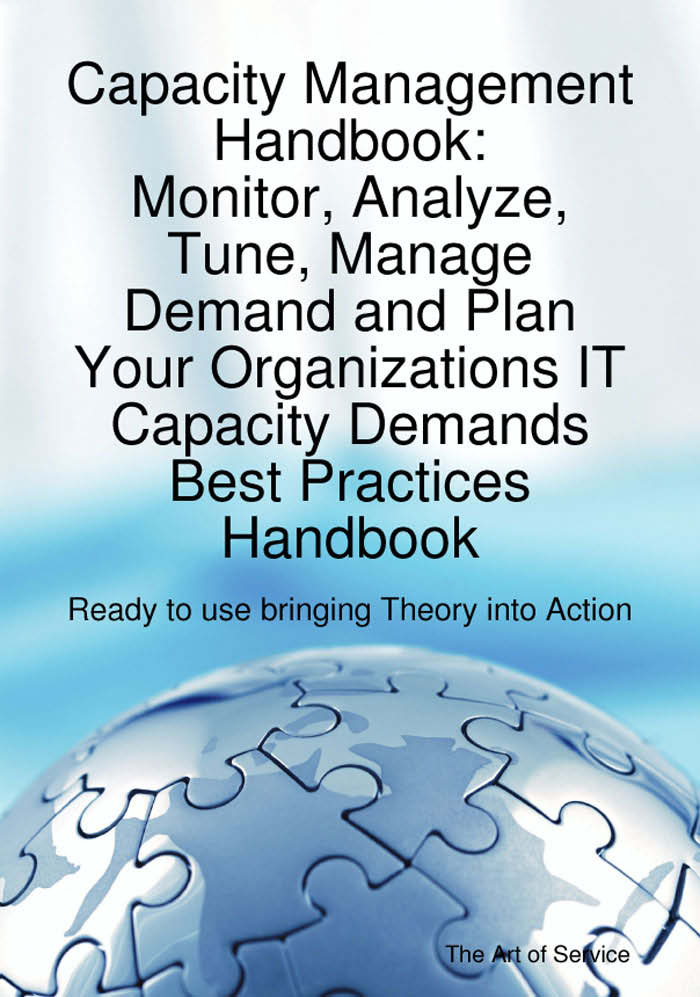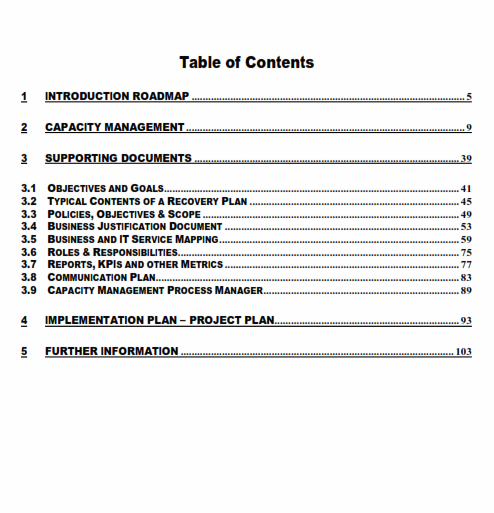
This thorough book provides a clear roadmap to designing, implementing and operating Capacity Management. The author leaves no key process out and completely covers everything from initial concept to measuring support effectiveness and process improvement.
The book starts with an initial strategy that is focused on planning Capacity Management services that are completely aligned to requirements and are based on a mission statement. This business-oriented approach is refreshing and will keep IT grounded in the real reasons for Capacity Management. More importantly is the process for careful selection of services to provide. An overly ambitious set of service goals will kill a Capacity Management implementation early in its life by offering too much before there is a stable Capacity Management process in place.
This book is realistic and lays the foundation for a successful implementation. The section on the actual design of the Capacity Management structure provides insights and information that can be applied to a large number of solutions. Since Capacity Management will be organized in accordance with requirements and unique mission statements, this section of the book is like a catalog of patterns. It has excellent tips on how to best structure Capacity Management to meet requirements and mission.



The IT Toolkit has truly revolutionized our IT operations. It's the foundation of our SOPs, helps generate run books, reduces training costs, and boosts user satisfaction.
After implementing the IT Toolkit, we now have a well-organized IT plan that's professional and easy for everyone to access and use.
Our clients have responded positively. Even those who had information, found ours better organized, making us more efficient and improving our IT management.
The toolkit offers a framework for best practices, ensuring that as practices evolve, our documentation system adapts seamlessly.
The IT Toolkit brings structure to documentation management, reducing the workload on engineers so they can focus more on clients. It's a game changer.
The IT Toolkit prevents duplicate entries and has replaced two other tools, making it much more effective and faster. Our engineers love it!
The IT Toolkit is incredibly easy to use with no ramp-up time. It's a straightforward process that gives clients control while simplifying their workflow.
The IT Toolkit has given me a better understanding of IT management efficiency and provides an easy, friendly way to improve our processes.
The toolkit has helped me organize my thoughts and training strategies with our IT team, making everything more streamlined.
Excellent IT Toolkit! It's essential for all CIOs and technology managers looking to enhance their operations.
A very useful toolkit, one of the best I've used. I wish every IT manager could benefit from it.
These toolkits have boosted my confidence and empowered me to grow as an IT Manager.